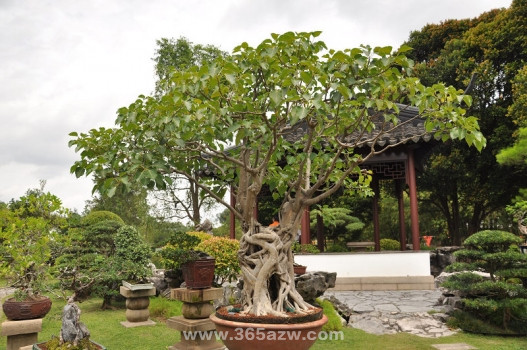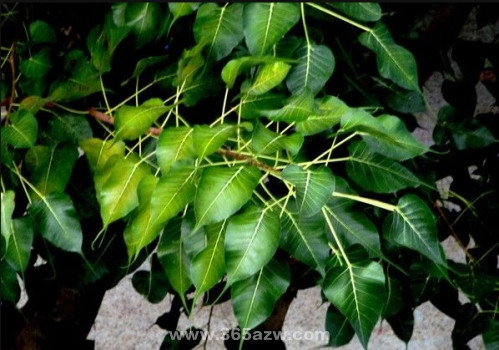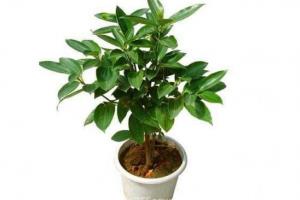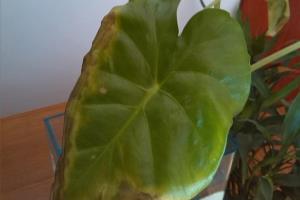The culture method of banyan tree: the pot needs to be changed once every two years.
The banyan tree is a large tree of Moraceae, which is full of Buddha nature and wisdom. it can be used as a potted plant in its seedling stage, which is often used to decorate the living room, study, etc., and can also be planted in the courtyard, making the family more mysterious, solemn and holy.

The culture method of banyan tree (basic knowledge)
1. Pot: garden soil, rotten leaf soil and coarse sand can be used to prepare culture soil at the ratio of 5:3:2, a small amount of cake fertilizer is added as base fertilizer, and the application rate is 1x20 of pot soil. Before planting, there are more broken tiles at the bottom of the basin to facilitate drainage, and fertile soil and loose slightly acidic sandy loam can be planted in the courtyard. Be careful not to hurt the root of the seedling when you put it on the pot.
2. Watering: the banyan tree grows fastest when it is more than 20 ℃. At this time, the water demand is large. Always keep the basin soil moist. Watering should see the principle of dry and wet. In midsummer, in addition to ensuring water supply, more water should be sprayed to the leaves. Watering gradually decreased after the temperature dropped at the end of autumn.
3. Fertilization: apply thin pancake fertilizer and water every 15 days or so. Stop fertilizing in midsummer and when the temperature is below 12 ℃.
4. Temperature: the suitable temperature for growth is 1525 ℃, but the room temperature above 5 ℃ can make it grow normally. When the room temperature is low, the florescence can be maintained for a long time, but the flowering is slow; when the room temperature is high, the flowering is fast, but the flowering period is short.
Plenty of light can make the flowers more beautiful and the leaves more shiny.
6. Pruning: plant pruning can be carried out in winter to maintain the beauty of the tree.
7. Pest control: there are few diseases and insect pests in potted plants. Leaf spot disease can be caused by planting in the courtyard. Bordeaux solution can be sprayed every 15 days at the initial stage of the disease, even for 2 or 3 times.
The breeding of banyan trees
The common methods of raising seedlings of banyan trees are sowing and cutting. Here are the specific operations.
Sowing and raising seedlings
1. Seed collection requirements: more than 10-year-old strong mother plants should be selected, and seeds should be collected when the fruit is red and black. 2. Seed treatment: the recovered fruit is rubbed repeatedly, the dregs are removed and the seeds are taken out, and the seeds can be sown after slightly drying. 3. Sowing method: generally use sand bed sowing, slightly compact the bed surface with a small board before sowing, flatten the bed surface, spread the seeds evenly on the bed surface, avoid seed overlap into a small mass when sowing, and try to spread each seed on the bed surface as far as possible. then sift a thin layer of soil to cover the seeds, and it is appropriate to just cover the seeds. 4. Maintenance after sowing: after sowing, straw or sunny net is used to build a shade to reduce the evaporation of water in the seedling bed and keep the bed moist. At the same time, Mianqing is sprinkled around the sand bed to prevent the seeds from being harmed by ants and mole crickets when they germinate. 5. Germination management: banyan seeds have no dormancy habit and can be germinated and unearthed about 10 days after sowing. When the seeds germinate up to about half of them, uncover all the straw, properly shade, and drench with water every morning and evening. When the seedlings reached 2~4cm, the seedlings were cultured in a nutrition bag packed with soil (topsoil with high humus content) by 10cm × 12cm, and good maintenance was paid attention to. When the seedlings reached 30~50cm, they could be transplanted.
Cuttage seedling
1. Selection of cuttings: in spring or autumn, 15-year-old strong mother plants were selected, branches with full axillary buds were selected on the mother plants, and cuttings with semi-lignified parts about 15cm in diameter (about 0.5~0.8cm in diameter) were cut off for cuttings propagation.
3. Maintenance after insertion: properly shade after insertion, keep ventilated and ventilated, and water the soil air several times a day to ensure the relative humidity of the soil air (if possible, regular mist spraying can be used). Spray cuttings with 0.125%-0.2% solution of universal fungicides (carbendazim, carbendazim, etc.) every 7 days to prevent cuttings from rotting under high temperature and humidity.
4. Transplanting time: cuttings can grow roots in about 10 days, and generally transplant in 20 days, but attention should be paid to bringing soil masses, which can improve the survival rate of seedlings.

Matters needing attention
1. Generally, potted plants need to be changed once every two years.
2. Watering should be dry and wet, and water thoroughly at one time. Dry and water again for two or three days in summer and once a week in winter.
Related
- Wuhan Hospital Iron Tree Blooming Result Was Instantly Frightened by the Gardener Master
- Which variety of camellia is the most fragrant and best? Which one do you like best?
- What is the small blue coat, the breeding methods and matters needing attention of the succulent plant
- Dormancy time and maintenance management of succulent plants during dormancy
- Minas succulent how to raise, Minas succulent plant pictures
- What are the varieties of winter succulent plants
- How to raise succulent plants in twelve rolls? let's take a look at some experience of breeding twelve rolls.
- Attention should be paid to water control for succulent plants during dormant period (winter and summer)
- Watering experience of twelve rolls of succulent plants
- Techniques for fertilizing succulent plants. An article will let you know how to fertilize succulent plants.



